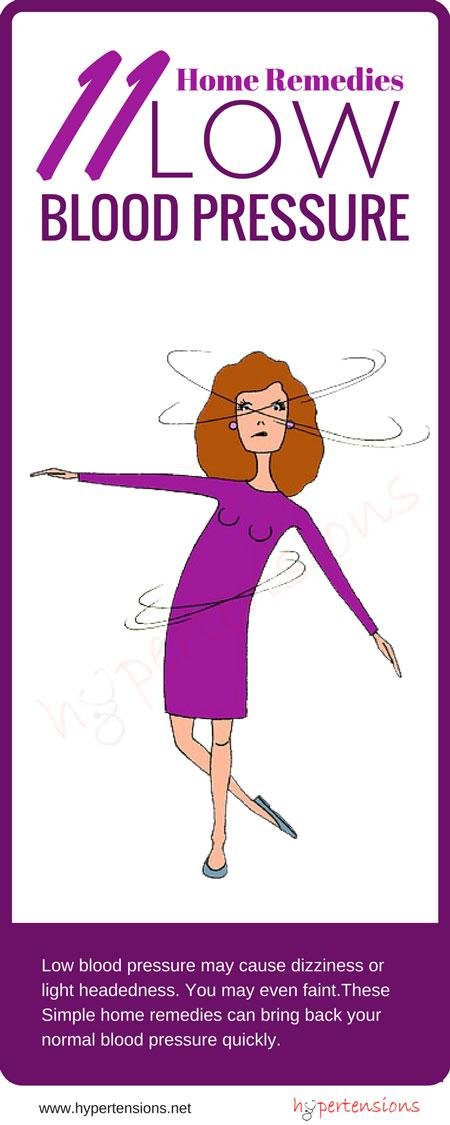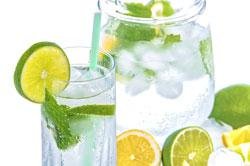Do you ever feel dizzy or lightheaded, especially after standing up quickly? These could be signs of low blood pressure, a condition affecting millions worldwide. While not always a cause for concern, low blood pressure can leave you feeling drained and sluggish.
Fortunately, there are numerous solutions! This article explores various low blood pressure remedies, including natural home fixes, dietary adjustments, and lifestyle changes. We'll also delve into when to seek medical attention and provide valuable tips for managing low blood pressure effectively. Let's get you feeling your best again!
Low blood pressure, also known as hypotension, often doesn't cause problems unless it dips significantly. Even then, in many cases, there are natural ways to increase blood pressure at home that can help you feel your best again.
What is Normal Blood Pressure?
A blood pressure reading of 120/80mmHg is considered normal. However, many people have readings around 110/70mmHg, which falls into the low blood pressure category, and live perfectly healthy lives without any issues. This type of low blood pressure typically doesn't cause any symptoms at all.
When to See a Doctor
If your blood pressure consistently stays below 90/60mmHg, you might experience symptoms like dizziness, headaches, or even fainting. It can also increase your risk for dementia and other complications (1). In this case, seeing a doctor is crucial to ensure your health and avoid potential problems. Low blood pressure during pregnancy also requires attention from a healthcare professional.
Low blood pressure can sometimes be caused by inadequate blood flow to vital organs like your brain, kidneys, and heart (2).
Simple Solutions for Low Blood Pressure
The good news is that there are natural remedies for low blood pressure that can help raise your blood pressure back to a healthy range.
Always Consult Your Doctor First
However, if your blood pressure remains low, it's important to consult a doctor. There could be underlying medical conditions causing the issue, or even certain medications you're taking that might be affecting it. Your doctor can create a personalized plan to get your blood pressure where it needs to be.
Home Remedies for Low Blood Pressure (With a Doctor's Okay)
Sometimes, simple lifestyle factors like dehydration, lack of exercise, nutritional deficiencies, or even a temporary decrease in blood volume can contribute to low blood pressure.

Fortunately, these issues can often be resolved by drinking more water and incorporating regular exercise into your routine. If your low blood pressure stems from nutritional deficiencies, eating a diet rich in fruits and vegetables can make a big difference.
Here are some home remedies for low blood pressure to keep in mind, but remember to talk to your doctor before trying any of them:
-
Salt Water (For a Quick Boost): If your blood pressure experiences a sudden drop, salt water can offer temporary relief. Adding a half teaspoon of salt to a glass of water increases your body's sodium content, which can raise blood pressure. (This is why people with high blood pressure need to limit salt intake.) Be cautious, though! If your blood pressure doesn't improve within 30 minutes, contact your doctor. Remember, saltwater is a temporary solution, not a long-term fix. Too much sodium can lead to other health problems.
-
Caffeine (Another Temporary Fix): A cup of strong coffee, hot chocolate, cola, or any other caffeinated beverage can give your blood pressure a short-term boost. Just be aware that caffeine can be addictive and has some downsides. If you're dealing with orthostatic hypotension (dizziness or lightheadedness when standing up), a daily cup of coffee in the morning might be helpful.
![black coffee]()
-
Lemon Juice (For Hydration and More): This is another quick remedy for low blood pressure you can try. Lemon juice can actually help regulate blood pressure, both high and low. Dehydration is a common culprit behind low blood pressure. Drinking freshly squeezed lemon juice with a pinch of salt and sugar can help you rehydrate and feel better. It may also improve your liver function and circulation, helping to combat low blood pressure.
Additional Home Remedy Options:
-
Beetroot Juice: This juice is a great choice for raising blood pressure, thanks to its high iron content, which can improve anemia, a condition that can sometimes contribute to low blood pressure.
-
Carrot Juice: Another winner for low blood pressure. Drinking fresh carrot juice on an empty stomach each morning may help normalize your blood pressure within a week.
-
Increase Fluid Intake: Low blood pressure often indicates low body fluid volume. So, it makes sense that dehydration can worsen it. Increase your fluid intake by drinking plenty of water, juices, and other healthy beverages. Aim for 8-10 glasses of water a day. All those fluids working together can help bring your blood pressure back up.
-
Raisins: A delicious way to manage low blood pressure! Soak a handful of raisins overnight and eat them on an empty stomach in the morning. Savor each one for maximum benefit.
- Rosemary: Rosemary is an herb that can be consumed as a food seasoning or as a tincture. It stimulates the central nervous system, which can improve blood circulation . Here's how to incorporate rosemary:
- Food: Add rosemary to your daily meals during cooking.
- Tincture: If needed, consume up to 10ml of rosemary tincture for a few days. However, consult your doctor first, especially if you have high blood pressure or are pregnant or breastfeeding.
- Hawthorn: Hawthorn is considered an effective natural remedy for low blood pressure. The two main components responsible for its hypotensive effects are quercetin and oligomeric proanthocyanidins (OPCs) . The entire hawthorn plant is beneficial for managing low blood pressure. Here's how to use it:
- Tea: Prepare tea using hawthorn flowers, leaves, and berries. Drink it regularly. Discuss with your doctor before using hawthorn, especially if you have heart disease or are taking medications that affect blood pressure or heart rhythm.
- Aniseed: Aniseed is rich in various vitamins and minerals, including calcium, copper, iron, magnesium, manganese, potassium, and zinc. Aniseed is considered an excellent remedy for low blood pressure over the long term. You can consume aniseed in the following ways:
- Food: Add aniseed to your daily meals.
- Tea: Make a tea using one teaspoon of aniseed in a glass of boiling water.
Lifestyle Changes
In addition to the home remedies mentioned above, here are some lifestyle changes that can help improve low blood pressure:
- Regular Exercise: Aim for at least 30 minutes of moderate-intensity exercise most days of the week. Exercise helps strengthen the heart and improve blood circulation.
- Healthy Diet: Eat a diet rich in fruits, vegetables, and whole grains. These foods are packed with nutrients that can help regulate blood pressure.
- Reduce Stress: Chronic stress can contribute to low blood pressure. Find healthy ways to manage stress, such as yoga, meditation, or spending time in nature.
- Maintain a Healthy Weight: Being overweight or obese can increase your risk of developing low blood pressure. If you need to lose weight, do so gradually with a healthy diet and exercise plan.
- Avoid Smoking: Smoking damages blood vessels and can worsen low blood pressure.
- Limit Alcohol Consumption: Excessive alcohol consumption can also lower blood pressure.
- Increase Compression Stockings: Compression stockings can help improve blood flow in the legs and may be helpful for people with orthostatic hypotension.
Important Note:
Always consult your doctor before trying any of these remedies, especially if you have underlying health conditions or take medications.
By making these lifestyle changes and incorporating some of the home remedies mentioned above, you may be able to raise your blood pressure to a healthy level and feel your best again. Remember, it's important to talk to your doctor to determine the underlying cause of your low blood pressure and get personalized advice on how to manage it.


